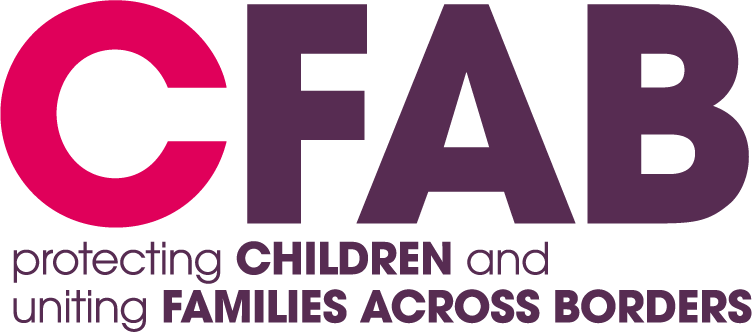Introducing CFAB's Pre-Placement Support Offer
CFAB now offers pre-placement support sessions for carers to help manage expected challenges and improve outcomes for children
CFAB now offers pre-placement support sessions for carers, tailored to individual family needs. Most carers may require support on at least one of the below topics:
• Understanding attachment & managing behaviours triggered by trauma
• Managing contact
• Introduction to life story work
Each session lasts 1 – 2 hours and will be conducted virtually in English or Italian. In advance of the session, our social work-qualified trainer will review the family’s case to ensure content is topical and addresses the needs of the child. Technical support will be provided to carers to ensure they are able to access online video conferencing (via Zoom, Teams or WhatsApp) and further support materials will be made available afterwards. While support sessions are offered directly to carers, we encourage carers to invite their wider family network to the session to ensure a broad network of understanding and support for the child/carer.
Why is pre-placement support necessary?
Children in kinship care are more likely than children in foster care to achieve permanence through a court order, less likely to be adopted and less likely to have social and emotional problems. However, research by Selwyn et al (2013) has shown that most kinship carers struggling financial, often as a result of their caring responsibilities, that carers and children often have difficult relationships with the children’s birth parents, and that carers struggle to cope with children’s emotional and behaviour difficulties. Preparing carers on what to expect and how to manage expected challenges helps to secure placement stability and better outcomes for children.
For children being placed from care in Scotland, pre-placement support is particularly important as Regulation 48 of the Looked After Children (Scotland) Regulations states that a looked after child or young person who is placed with a Kinship Carer must receive regular visits. When a child is placed abroad, this is not always possible so it is essential that the child and carer are supported – even before the placement is made – to ensure stability and permanence.
What is the cost?
One session starts at £220 for CFAB Members (£280 for non-members). A package of three sessions starts at £460 for CFAB Members (£580 for non-members).
What does each session cover in detail?
Attachment & Trauma
This training will cover:
• How attachment relationships are formed and reinforced
• How Developmental Trauma affects children's brains and emotions, and what it looks like in day-to-day behaviour
• What helps when children have experienced trauma, and what does not
• Therapeutic parenting in different cultural contexts
Introduction to Life Story Work
This training will cover:
• What is life story work and why is it important? The power of stories in identity creation
• Shame and social stigma in life story work
• How to talk to children and teenagers about difficult topics, including practical tips and prompts.
• Managing your own emotions during life story work
Managing Contact
This training will cover:
• Why contact is important and who is included in contact
• Kinship Carers’ legal responsibilities around contact, including keeping children safe
• Supporting children before, during and after contact- including practical tips and do’s & don’ts.
• Creating a positive culture around contact in your home
• Safeguarding considerations: when contact goes wrong.
Who runs the session?
Sessions are run by an experienced, registered social worker with knowledge of kinship care, fostering and adoption. These virtual support sessions to kinship carers have been run effectively since the start of the pandemic in 2020. The vast majority of kinship carers supported have been from BAME backgrounds.
What attendees say about the sessions
“Thank you so much for all you’ve done it’s made my transition as a SG that little bit easier and not so alone. I think the last session open [sic] the eyes of other family members to show them how I’m being supported and not just that’s it open because baby is with me.”
For more information: info@cfab.org.uk


